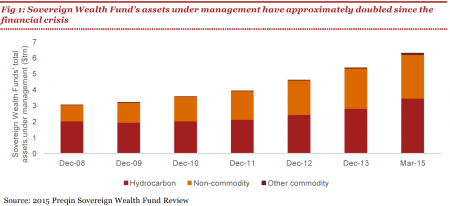Important Information
This website uses cookies. By using this website you accept the use of cookies. Learn more.


PwC senior economist Richard Boxshall says: “In light of these changes, the current objectives of SIs may no longer be appropriate. We think now is the time for policymakers to review their sovereign investment funds and ask whether different objectives could be beneficial for their economy.”
Based on a review of the stated objectives of 74 SIs, PwC has established a framework of objectives, with the three main ones being capital maximisation, stabilisation and economic development. When reviewing SIs’ objectives, policymakers need to consider what their fund has been doing recently and what they want the fund to do over the next decade, which may involve a change in strategy.
PwC’s economists have identified three questions that policymakers need to answer linked to the changes to the global economy:
1. Moving on from the crisis, what structure does the domestic economy need to take so that there are several sustainable and diversified drivers of growth?
2. Will a tightening monetary policy cycle in the US mean that the US dollar remains strong for a prolonged period of time?
3. Will changes to demand and supply factors in the oil market keep prices low over the medium-term?
Says Richard Boxshall: “After policymakers have taken a view on all of these questions, they will be better positioned to begin assessing whether a change is needed to their SIs’ objectives. The chosen objectives should be at the heart of measuring the fund’s performance. Strong investment returns, while important, are not necessarily a sign of success. The fund has to meet its macroeconomic objectives to be deemed truly successful.”
Notes:
The September edition of PwC’s Global Economy Watch can be found at www.pwc.com/gew.
About PwC
PwC helps organisations and individuals create the value they’re looking for. We’re a network of firms in 157 countries with more than 195,000 people who are committed to delivering quality in assurance, tax and advisory services. Find out more and tell us what matters to you by visiting us at www.pwc.com.
PwC refers to the PwC network and/or one or more of its member firms, each of which is a separate legal entity. Please see www.pwc.com/structure for further details.